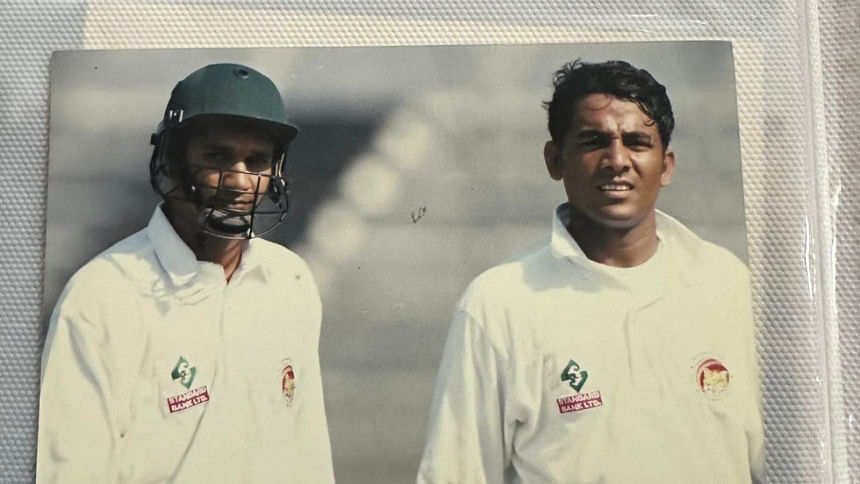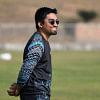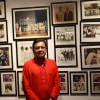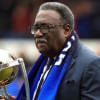‘We should’ve been ranked fifth or sixth by now’

On November 10, 2000, Shahriar Hossain Biddut, regarded as one of the finest openers the country has ever produced, etched his name in the history books when he faced the first ball for Bangladesh in their inaugural Test, played against India in Dhaka. On the occasion of Bangladesh's 25 years in Test cricket, Biddut spoke to The Daily Star's Samsul Arefin Khan. The following are excerpts from the interview:
The Daily Star (DS): Can you recall the memories of Bangladesh attaining Test status and your experience of playing the inaugural Test?
Shahriar Hossain Biddut (SHB): It's a dream for any cricketer to earn a Test cap. It's a major achievement—whether you play one Test or a hundred, you're still a Test cricketer. To recall that first Test experience, I have to go back to a three-day match against the MCC (Marylebone Cricket Club) at the Dhaka Stadium in early 2000. I scored centuries—133 and 121 not out—in both innings. Around that time, we were playing longer-version domestic tournaments and soon after, we received Test status. Our first Test was against India, one of the world's top teams at the time. They had players like Tendulkar and Ganguly—icons for us. Around 18 to 20 players were called to a preliminary camp at BKSP, where we played a practice match. We were told the top performers would make the Test squad. I scored a century in the first innings of that game. The very next day, newspapers ran headlines saying my hundred had secured my place, and the debate was now about who would partner me—Gulla [Javed Omar] or Opee [Mehrab Hossain]. When the final squad was announced and I wore the Test cap, it felt like I had achieved everything I ever dreamed of in cricket. I still take pride in the fact that I faced the first ball for Bangladesh in Test cricket.
DS: When you began playing cricket, Bangladesh didn't have Test status. When did you start believing the dream was becoming reality?
SHB: We had already achieved ODI status and played in the 1999 World Cup, but we didn't expect Test status so soon. Ashraful [Syed Ashraful Haque] bhai and Saber [Hossain Chowdhury] bhai were key figures in the board, and they played significant roles in helping us achieve that milestone. The whole country celebrated when we got Test status. I think our performance in the MCC match, which included a few England players, also played a part. That's when we started believing that we could play Test cricket.
DS: Some say Bangladesh received Test status earlier than deserved. Do you agree?
SHB: I think we got it at the right time. In our debut Test, we scored 400 in the first innings. Soon after, Ashraful became the youngest Test centurion. We nearly won the Multan Test against Pakistan and later beat Zimbabwe to record our first Test win. Players like Ashraful, Mashrafe, Mushfiqur, Shakib, and Tamim came through within a few years of getting Test status. I believe we were capable—but we didn't make the most of it.
DS: Do you have regrets about your Test career? You played only three matches.
SHB: I think I could have played for another three to four years. I was only 28 when I played my last Test. But I didn't have a good relationship with the board members at that time—I was quite stubborn. I had several injuries and was in and out of the team, but I always tried to return through performance. In 2004, during the West Indies tour, Faruque [Ahmed] bhai was both selector and team manager. I got injured before the first Test, and physio John Gloster advised seven days' rest so I could be fit for the ODIs. But after the first ODI, they sent me home. I was furious at the decision and, upon returning, I sent the board a retirement letter. I never played any form of cricket after that.
DS: Are you happy with Bangladesh's progress in Test cricket over these 25 years?
SHB: I'm not satisfied. Other teams have reached a strong position after 25 years of Test cricket. We should be at least ranked five or six by now. We've had some great players and individual performances, but as a team, we haven't progressed as expected. Back when Ope and I opened the innings, people had confidence in us. Even after 25 years, we're still struggling with our opening combination—this is a big failure. The same goes for ODIs; we don't have a settled pair at the top.
DS: What suggestions would you offer for the improvement of Bangladesh cricket?
SHB: Team selection is a major issue. Some players get too many chances, while others don't get any. The quality of domestic cricket has declined. Everyone's excited about the BPL, but it won't develop our cricket. We need to emphasize longer-version domestic matches. Like India, we should introduce U-15 and U-16 longer-format tournaments so young players can get used to red-ball cricket. We have coaches in every district, but we're not seeing the results. India keeps producing new talent; we keep rotating the same players. The development work must start at the grassroots to decentralize cricket and uncover fresh talent. Infrastructure has improved, but BCB needs to invest more in utilizing it. There's still a huge gap in our domestic structure that needs addressing.

 For all latest news, follow The Daily Star's Google News channel.
For all latest news, follow The Daily Star's Google News channel. 








Comments